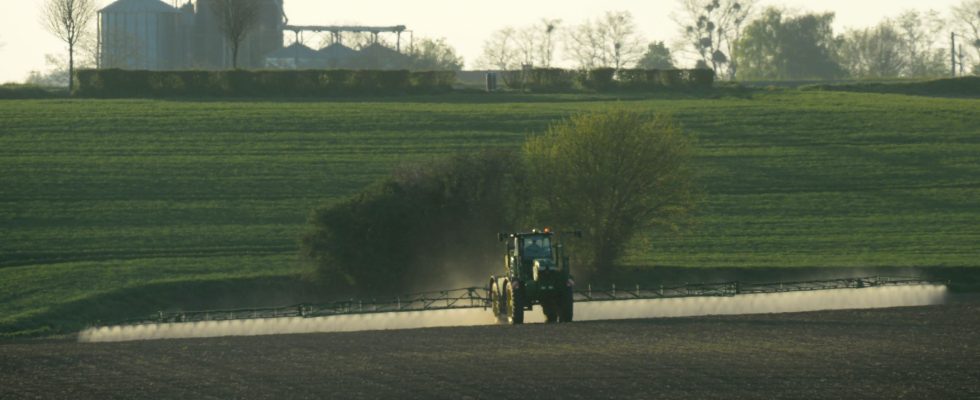The announcement did not go unnoticed: the European Food Safety Authority (EFSA) has not identified a level of risk associated with glyphosate that would justify its ban in the European Union. This opinion, submitted Thursday July 6 to the European Commission, will serve as a basis for Brussels to decide whether or not to renew the authorization of the herbicide for five years – the current one is in force until December 15, 2023.
EFSA “did not identify an area of critical concern” for glyphosate in humans, animals and the environment, she explains in a press release. A concern is defined as “critical” when it affects all the proposed uses of the active substance evaluated, thus preventing its authorisation. It nevertheless noted “a high long-term risk in mammals” for half of the proposed uses of glyphosate, and acknowledged that the lack of data prevented any definitive analysis. Unsurprisingly, this study has aroused the ire of many NGOs, while the WHO qualifies glyphosate as a “probably carcinogenic” agent for humans.
In France, President Macron had undertaken to ban this pesticide from the territory by the end of 2020. He then went back on his promise admitting, during a visit to Drôme in January 2019, that France would not be able to completely do without this controversial herbicide within three years.
Vietnam, for its part, passed the milestone in April 2019. It banned glyphosate, citing the “toxicity” of products containing it and insisting on the consequences for the environment and health. Hanoi has been waging a parallel legal battle for several years against Monsanto, an agrochemical behemoth, to claim compensation for the victims of Agent Orange, a toxic defoliant used by the American army during the Vietnam War.
Other states have promised to follow a similar path. Mexico, for example. In December 2020, the American giant’s neighbor published a decree setting until January 31, 2024 to gradually ban the use of glyphosate. Ditto for genetically modified corn.
Luxembourg, a pioneer who has retreated
The German government is also seeking to withdraw this herbicide from the market. And the deadline is approaching, since Berlin has given itself until the end of 2023. But this project could be compromised if the European Union decides to renew the authorization of the substance. Especially since on the glyphosate component, it is customary for countries to backtrack. The most recent example? Luxembourg. It was the first European country to ban the controversial herbicide on its territory. The decision was ratified on February 1, 2020, the date on which it withdrew the marketing authorization for plant protection products based on glyphosate. Luxembourg tolerated the disposal of existing stocks for a few months, until the complete ban on their use from 1 January 2021.
This giant step was trampled by a court decision rendered on March 31. While the Bayer group had filed an appeal before the administrative courts against the banning of its products, the courts ruled in its favour. She pointed to “the absence of indication of the slightest legal argument” to ban the eight products concerned.
Sometimes the decline is political. Like in Austria. In July 2019, the ban on glyphosate was validated by Parliament, where the oppositions were allied. But the Conservative government finally announced in December of the same year that it would not implement the ban on this controversial herbicide. Back to square one again.
El Salvador and Sri Lanka had already reversed the ban on glyphosate on their territory, yet banned respectively in 2013 and 2015. In Sri Lanka, President Mahinda Rajapaks had opted for a total and immediate ban because of a “multiplication of chronic kidney disease in the north of the country, particularly among rice farmers”, recalled TV5 World, which then evoked “decimated villages”. Three years later, the government decided to relax the law under pressure from industrial lobbies. The country has, in passing, drawn a line under its 100% organic agricultural project.
Other countries are advancing on this burning issue, issuing very partial bans on glyphosate. Especially in Europe. In October 2018, Belgium banned the sale of broad-spectrum herbicides (including glyphosate) to non-professional users. A few months earlier, in July 2018, the Danish government had put in place new rules prohibiting the use of the herbicide on all emerging crops. The aim was to avoid residues in food.
